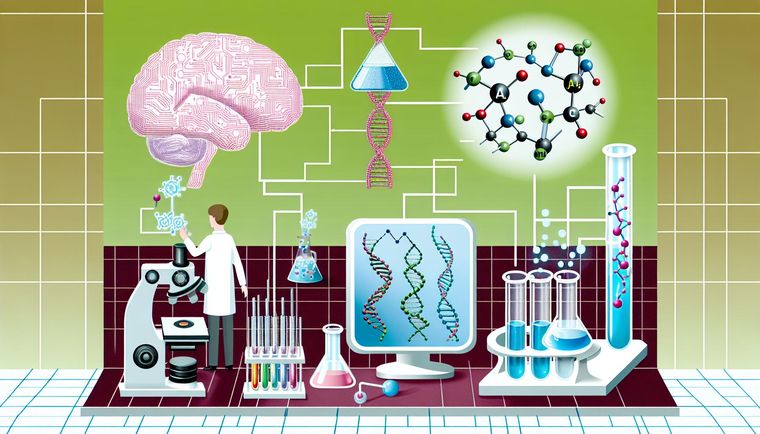Nobel Prize in Chemistry 2023: Revolutionizing Protein Science with AI and Design

On Wednesday, the prestigious Nobel Prize in Chemistry was awarded to three groundbreaking scientists: David Baker, Demis Hassabis, and John Jumper. Their innovative work has significantly advanced the field of protein science, a cornerstone of life itself.
David Baker, a researcher at the University of Washington in Seattle, has been instrumental in designing new proteins since 2003. Over the years, his research group has created a multitude of imaginative proteins with practical applications, including pharmaceuticals, vaccines, nanomaterials, and small sensors. The Nobel Committee recognized Baker's contributions, highlighting how he has opened up new avenues in protein design.
On the other hand, Demis Hassabis and John Jumper, who both work at Google DeepMind in London, developed an artificial intelligence model that predicts the structure of nearly all 200 million proteins that scientists have identified so far. Heiner Linke, Chair of the Nobel Committee for Chemistry, remarked that the ability to predict the three-dimensional structure of proteins had been a long-held dream among scientists. In 2020, Hassabis and Jumper achieved this dream by employing advanced AI techniques.
According to Linke, understanding the complex structure of any known protein in nature is a game-changer. He further noted that another significant aspiration for scientists has been to construct new proteins and harness nature's multifunctional capabilities for human benefit—a challenge uniquely addressed by David Baker. His computational tools have empowered scientists to design strikingly original proteins with unprecedented shapes and functionalities.
Last year, the chemistry prize was awarded for innovative work on quantum dots—tiny, light-emitting particles with tremendous potential in electronics and medical imaging. The recent Nobel announcements kicked off on Monday, recognizing American scientists Victor Ambros and Gary Ruvkun for their contributions in medicine, followed by renowned machine learning pioneers John Hopfield and Geoffrey Hinton, who were awarded the physics prize.
The series of awards continues with the literature prize set to be announced on Thursday. The Nobel Peace Prize will follow on Friday, and the economics award will round out the recognition on October 14. Each award carries a significant cash prize of 11 million Swedish kronor, which originates from a bequest made by Alfred Nobel, the prizes' founding creator.
The laureates will be honored during ceremony events on December 10, marking the anniversary of Nobel's death. This year's recipients have not only made strides in scientific research but have also paved the way for future explorations into the vast and intricate world of proteins, benefiting humanity in countless ways.
Related Sources:
